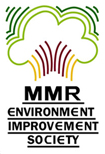The main objective of the MMR-EIS is to promote protection, preservation, improvement and monitoring of environment in the Mumbai Metropolitan Region (MMR) through all constitutional means including legal; and to adopt all such means to achieve the objects incidental or ancillary to the attainment of the main objects including but not restricted to the following:
 Ecological Restoration and Greening Programmes
Ecological Restoration and Greening Programmes
1) To undertake protection or conservation or rejuvenation programmes leading to environmental improvements including the following:
- Development of lakes in low lying areas which are subjected to uncontrolled disposal of sewage, municipal refuse etc.
- Rejuvenation of deteriorated/eutrophicated lakes.
- Programmes for rehabilitation/landscaping of quarried areas.
- Ecological restoration programmes for degraded lands.
- Cleaning up or purification of polluted surface water bodies and coastal waters.
- Promoting eco-friendly technologies to improve the environment.
- Precognition and degradation of flora and fauna and also environmental heritage.
2) To undertake or promote greening programmes such as:
- Urban forestry /Urban plantation.
- Green belt development programmes (particularly of tolerant/ resistant species) including around heavily industrialised areas or in the areas where soil conservation is necessary.
- Tree plantation programmes including that along roadside (particularly of species capable of trapping dust).
- Programmes for protection or preservation or rejuvenation of mangroves and wetland areas.
 Developing Capabilities of Local Government
Developing Capabilities of Local Government
To develop capabilities of local authorities for environmental protection, improvement and monitoring and to provide technical guidance and financial assistance for various activities.
 Solid Waste Management Programmes
Solid Waste Management Programmes
To provide technical guidance and financial assistance for solid waste management activities including the following:
- Promoting environmentally appropriate methods of disposal of hospital waste by local authorities/hospitals.
- Conversion of organic waste into manure/soil conditioners by vermin-composting or other innovative methods.
- Disposal of solid waste by sanitary land filling along with biogas recovery
- Promoting programmes for separation of organic and inorganic waste at source linking with existing / new available approaches
- Management and disposal of hazardous waste including toxic.
 Technology Conversion Programmes
Technology Conversion Programmes
To promote application of programmes, which will help to reduce air pollution, impacts on the environment through industrial, domestic and vehicular emission control including the technology conversion programmes such as:
- Installation of electric/diesel crematoria.
- Retrofitting vehicles for converting to CNG operations.
- Retrofitting vehicles with toxic gas absorbing units/other such pollution control apparatus
- Conversion of diesel/petrol vehicles to solar cells/Nickel-Cadmium battery operated vehicles;
- Modifications of industrial manufacturing processes and operations.
 Conducting Studies, Surveys and Research
Conducting Studies, Surveys and Research
1) To promote studies, surveys, research & their application for protecting or improving environmental processes and operations such as the following:
- Ambient air quality through domestic, industrial and vehicular emissions control.
- Solid waste collection and management including identification of suitable disposal sites.
- Hazardous wastes and industrial wastes handling and disposal.
- Resources conservation including recycling and reuse.
- Environmental and health impact assessment.
- Water resources including the coastal waters
- Noise pollution
- Water quality for conventional & non-conventional pollutants.
2) To promote application of designs for resource conservation and reuse, such as the following:
- Pilot scale/demonstration projects in the field of waste recycling and emission control.
- Recycling of waste water for gardening or greening or for industrial purposes.
- Recycling of solid and industrial waste.
 Undertake training, education and awareness activities
Undertake training, education and awareness activities
- To organise training Programmes for non-governmental organisations/schools/ colleges in environment related matters.
- To publish a journal and organise other publications on various aspects related to environmental improvement.
- To promote awareness about environmental protection and improvement related movement by educating general public as well as students at the school level, by organising exhibitions/competitions on environment.



 To act as advisors, consultants, appraisers and assessor
To act as advisors, consultants, appraisers and assessor

